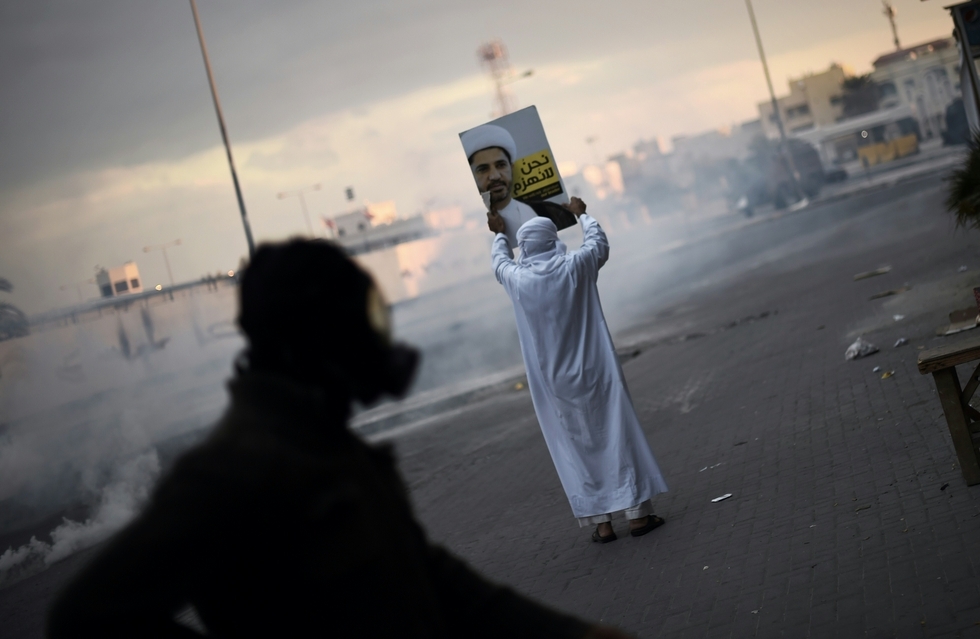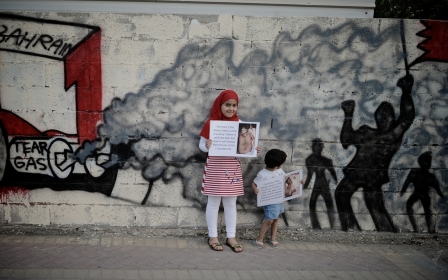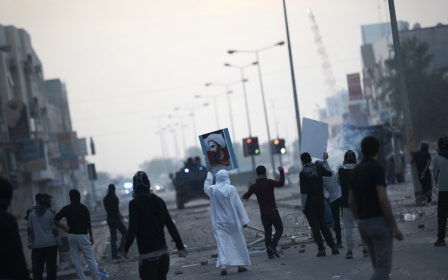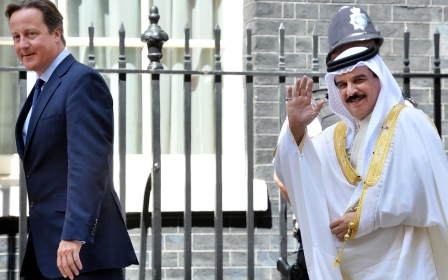Bahrain’s five-year plan of repression

On 28 December 2015, a group of activists, human rights defenders and opposition leaders gathered to observe the first anniversary of Sheikh Ali Salman's arrest and detention in Bahrain. Just seven months earlier, a court sentenced Sheikh Salman, the secretary general of Bahrain’s largest opposition bloc, al-Wefaq, to four years in prison for “inciting hatred, promoting disobedience and ‘insulting’ public institutions".
Those gathered on the anniversary of Sheikh Salman’s arrest criticised the court decision, accusing the authorities of pressing politically motivated charges related only to his free expression of non-violent dissent.
The government of Bahrain chose to observe this anniversary a little differently, however.
Nine days later, on 6 January 2016, the public prosecutor charged Wa’ad secretary-general Radhi al-Mosawi, human rights defender Sheikh Maytham al-Salman, and Al-Wefaq leaders Sayed Jameel Kadhem, Khalil al-Marzooq and Mohammed Khalil with “expressing views regarding a case still in court” and “inciting hatred against the regime” – all for remarks allegedly made at the anniversary event for Sheikh Salman’s arrest on almost the same charges.
This chain of events perfectly demonstrates the self-perpetuating cycle of repression in Bahrain: the government arbitrarily arrests its critics, thereby generating more criticism, which in turn allows it to make more arbitrary arrests. The authorities have been caught in this simple feedback loop of action and reaction – oppression and repression – since the onset of the pro-democracy movement in February 2011, which marks its fifth anniversary this month.
And it is getting worse.
Such a policy is as self-reinforcing as it is dangerous and politically unsustainable. Five years on from the original uprising, security forces may not be responding with the same level of direct violence that left at least 80 protesters dead between 2011 and the end of 2013. But with each passing year, and each slew of politically motivated arrests, the government of Bahrain has created more and more flashpoints for unrest.
According to data collected by the Bahrain Centre for Human Rights, for example, cases of arbitrary detention and torture have been on the rise; of the more than 400 arrests made by Bahraini authorities during the last four months of 2015, around 80 percent were effected unlawfully.
Indeed, while outright violence has for now subsided, the government has come to rely even more on the structural violence of a biased criminal justice system – often using it to further punish the victims of torture and abuse. On 25 January 2016, just four days after Bahrain hosted a Gulf Cooperation Council “human rights” conference, the courts sentenced 57 Jau prisoners to additional 15-year jail terms for allegedly “unleash[ing] acts of chaos, riots and rebellion inside (prison) buildings” last March.
The court found these men guilty en masse, despite a growing mountain of evidence that Bahraini authorities collectively punished the entire prison population for the actions of a minority of inmates, subjecting the detainees to collective torture and other severe human rights abuses before, during, and after the riots.
More generally, torture, coerced confessions, and other due process violations remain staples of the Bahraini judicial process. Arguably, the situation has deteriorated since the Bahrain Independent Commission of Inquiry (BICI) first called on the government to prevent torture and hold perpetrators accountable five years ago. As illustrated above, the tortured often face "justice" before their torturers.
Following the lead of its Saudi neighbours, the government of Bahrain also continues to broadly enforce vague and all-encompassing anti-terror legislation, effectively criminalising dissent in the ever-ambiguous name of "security". This dubious legal framework has enabled – if not encouraged – the authorities to conflate free expression with terrorism and rights activists with terrorists.
This "securitised" approach to criminal justice can also be seen in the government’s increased revocation of citizenship. Using the country’s ambiguous anti-terror legislation, Bahrain’s courts opened 2015 by stripping 72 individuals of their citizenship, including doctors, journalists, political activists and a human rights defender. By the year’s close, Bahraini authorities had revoked the citizenship of at least 208 people, showing no distinction between activists, average people, and actual terror suspects.
Once stripped of their citizenship, these people are left with three choices: find a sponsor willing to risk government pressure, go to jail, or face exile. Simply put, the Bahraini government is now wielding citizenship as just another weapon in the fight against dissent, willfully abandoning its own people to statelessness in retaliation for free expression.
Such human rights and due process violations are the defining characteristics of the Bahraini judicial system. Sheikh Ali Salman, Sheikh Hasan Isa, and Ebrahim Sharif – many of the same activists targeted five years ago - are on trial today.
Dr Abduljalil al-Singace, sentenced to life in prison in 2011, just finished almost a year on hunger strike in protest at the political situation and the dismal conditions and treatment in prison. His 313 days without food should serve as a reminder that while the forms of state violence have evolved in Bahrain, people continue to suffer for nothing more than voicing their opinions.
Some 200,000 Bahrainis assembled at the Pearl Roundabout in 2011 to call for democratic reforms and human rights protections. In the years since, the government has insisted that its new policies have addressed the concerns of the people and of the BICI, an independent committee of jurists tasked with assessing the country’s political situation.
Its report concluded then that the government engaged in the “systematic practice of physical and psychological mistreatment,” and that it must immediately reform such practices if it was to achieve a peaceful resolution to the unrest in Bahrain.
Reading these words five years on, you’d be forgiven for thinking the BICI wrote its report just yesterday.
On this fifth anniversary of Bahrain’s pro-democracy movement, it is clear that the authorities have continued to compound, rather than address, the grievances raised in 2011. They have been enabled to do so as a result of the silence of the international community, particularly the US and the UK.
In the absence of a strong course correction and international pressure – and soon – it will quickly become clear that the government is deliberately ratcheting up the risk of what could quickly become an irrevocable political crisis and irreversible flashpoint in an already tumultuous and conflict-ridden region.
- Kate Kizer is the US advocacy officer at Americans for Democracy & Human Rights in Bahrain.
- Michael Payne is the International Advocacy Officer for Americans for Democracy & Human Rights in Bahrain.
The views expressed in this article belong to the author and do not necessarily reflect the editorial policy of Middle East Eye.
Photo: A Bahraini protester holds a placard depicting a portrait of Sheikh Ali Salman, head of al-Wefaq opposition movement, during clashes with riot police following a protest against Salman's arrest in the village of Sitra, south of the capital Manama, on 29 January, 2016 (AFP).
Middle East Eye propose une couverture et une analyse indépendantes et incomparables du Moyen-Orient, de l’Afrique du Nord et d’autres régions du monde. Pour en savoir plus sur la reprise de ce contenu et les frais qui s’appliquent, veuillez remplir ce formulaire [en anglais]. Pour en savoir plus sur MEE, cliquez ici [en anglais].




